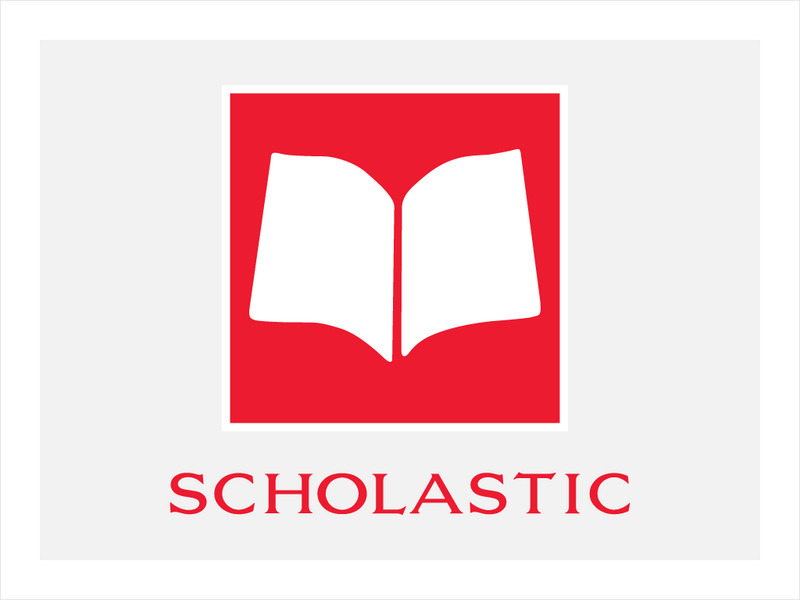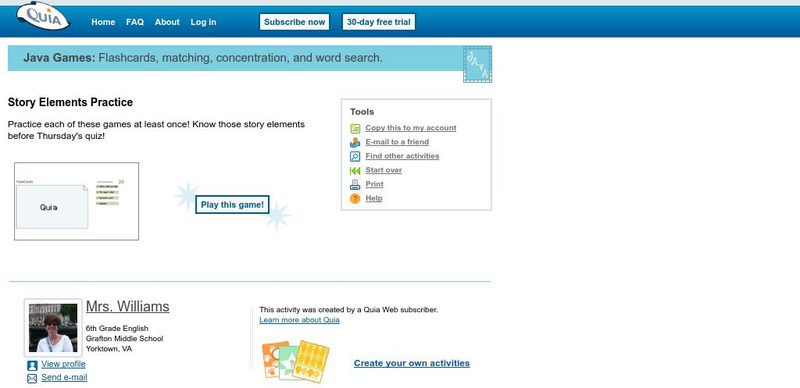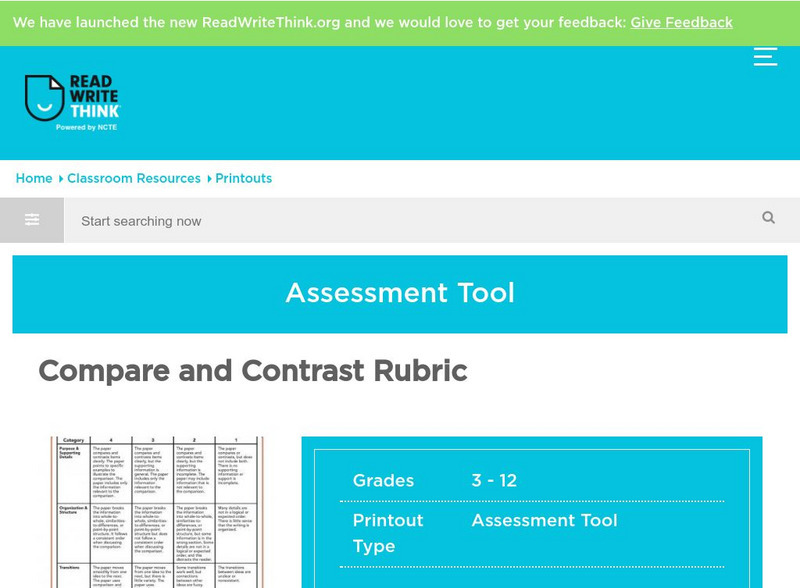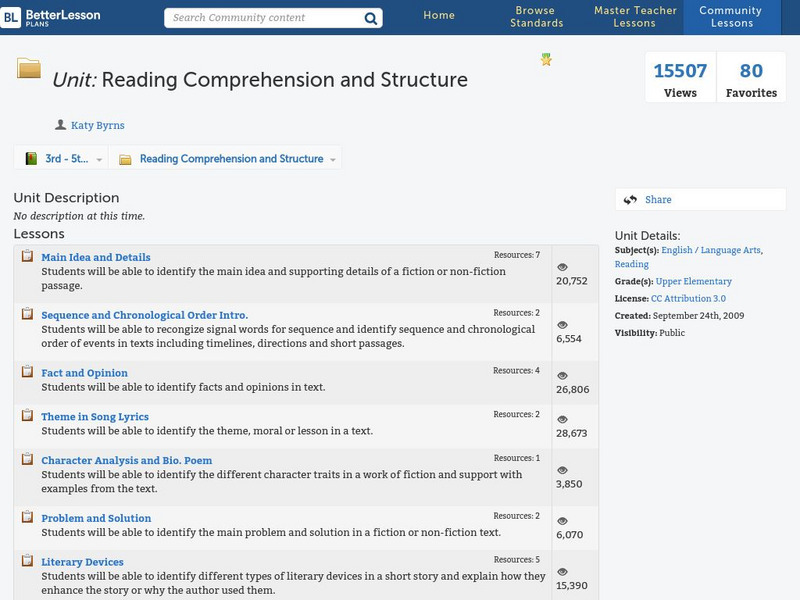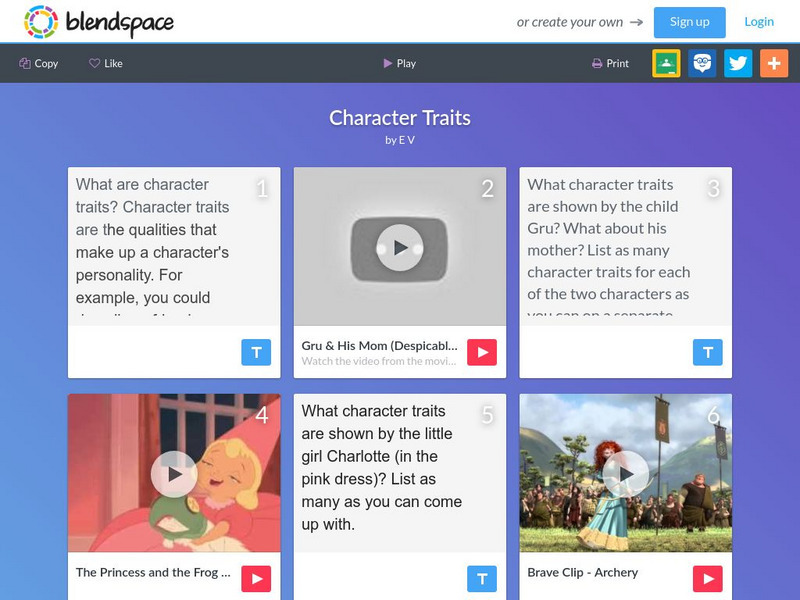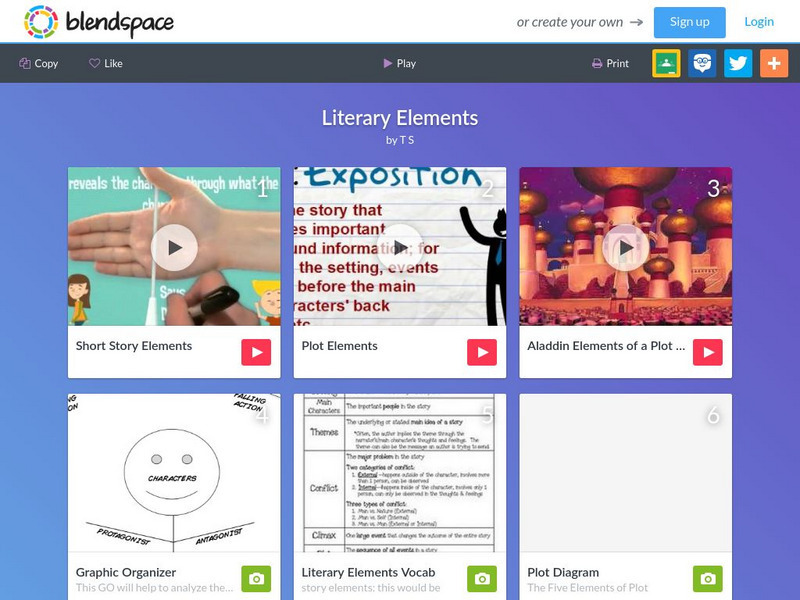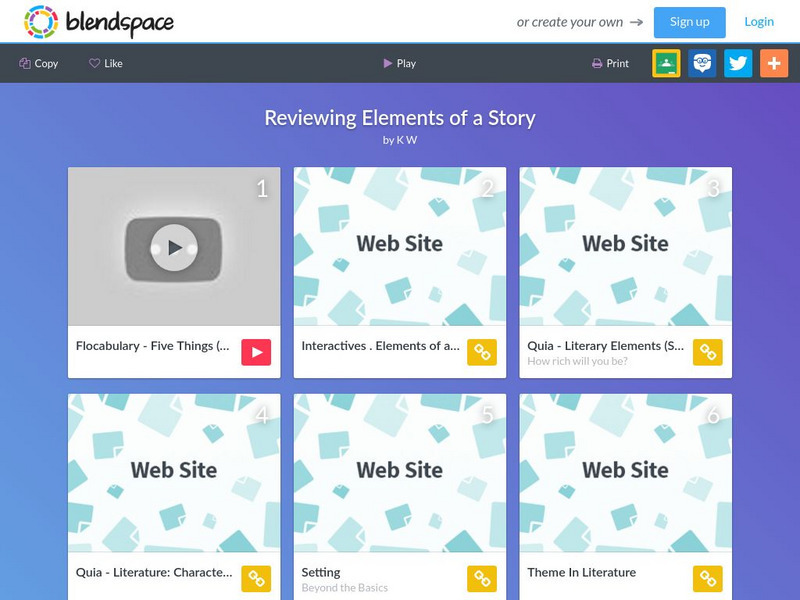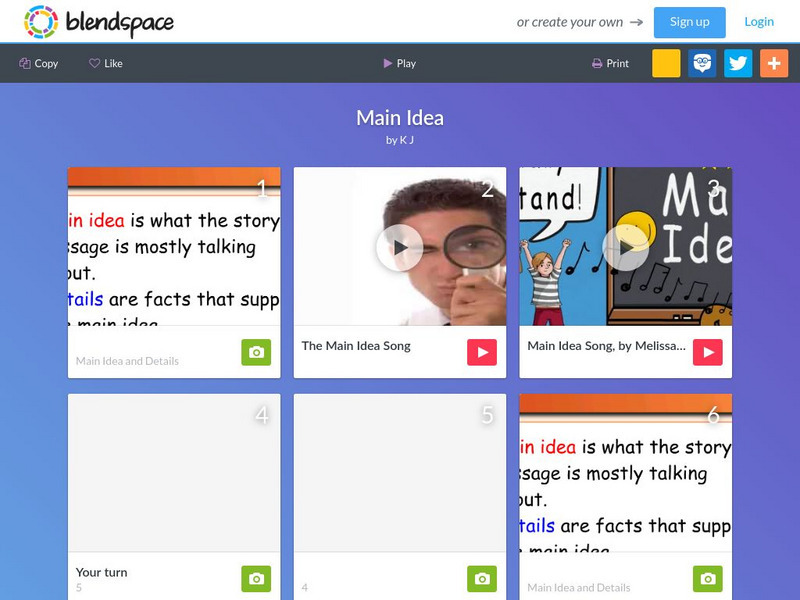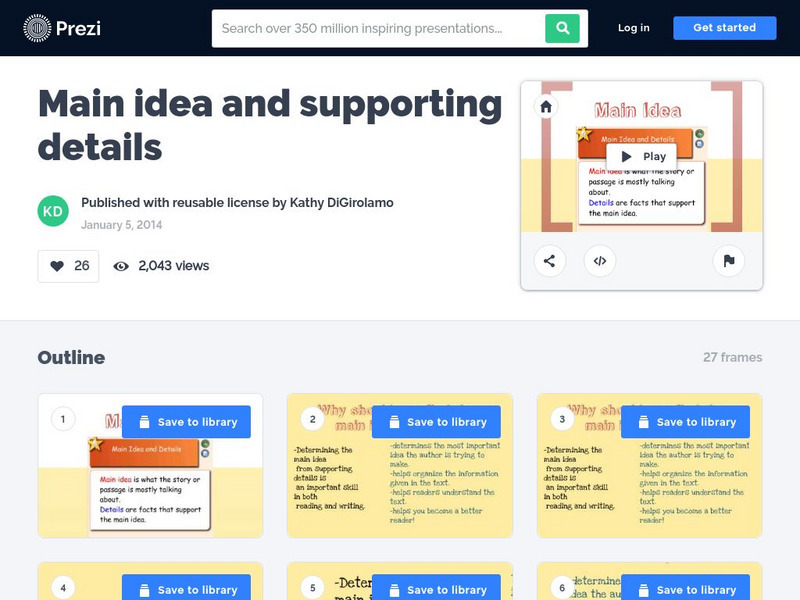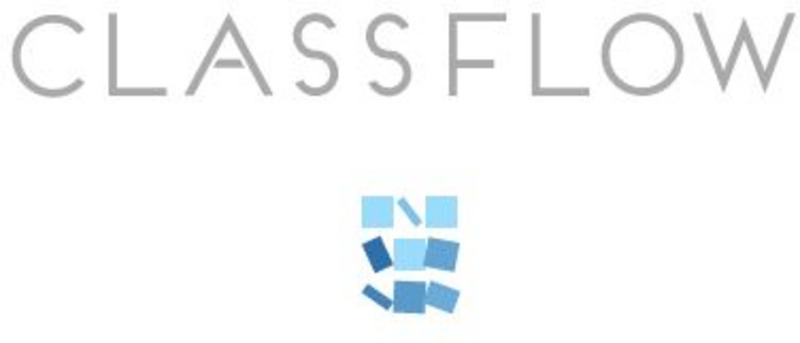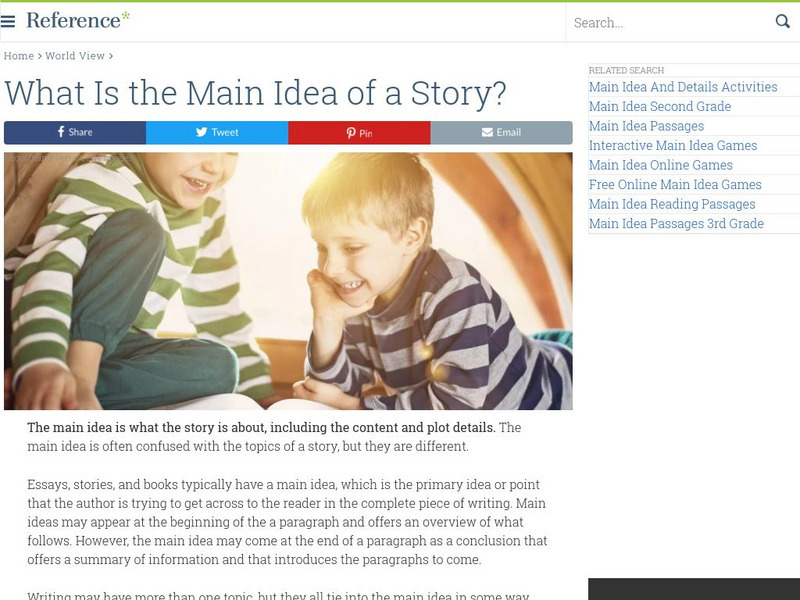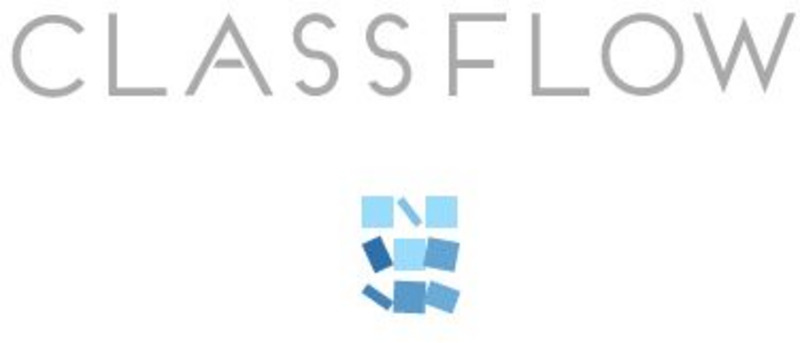Quia
Quia: Short Story Elements: Definitions
Twenty-two flashcards with plot elements and their definitions.
Quia
Quia: Short Story Elements: Definitions
Play a matching game by joining each plot element with its definition or example.
Quia
Quia: Compare and Contrast
Answer questions comparing and contrasting two short texts in this five-question quiz.
Other
Cyberwriter: Descriptive Writing
Resource gives writing activities leveled K-1st grade, 2nd & 3rd grades and 4th through 8th grades.
Curated OER
Mc Graw Hill: Informational Text: Compare Text Structures
This learning module focuses on comparing organizational patterns in informational texts including chronological order, compare and contrast, cause and effect, and problem and solutions. Click on each text structure for an explanation.
Scholastic
Scholastic: Informational Text: Reading Response: Compare and Contrast
A brief graphic organizer to help students visualize the similarities and differences in a piece of informational text.
Quia
Quia: Story Elements Practice
This series of flashcards from Quia helps students perform a quick check of their understanding of student elements, such as setting and conflict.
SMART Technologies
Smart: Developing Characters and Settings
In this activity provided by SMART, students will give reasons why they feel characters are important in a story. Students will explore how to create effective characters and settings in their own writing by using a character web.
ReadWriteThink
Read Write Think: Compare and Contrast Rubric
Students and teachers can assess their own writing with this compare and contrast rubric.
Better Lesson
Better Lesson: Unit: Reading Comprehension and Structure
This unit focuses on reading comprehension and structure. It includes lessons on the main idea and supporting details, theme, sequence, fact and opinion, literary devices, character, text features, inferences, organization of nonfiction,...
TES Global
Blendspace: Text Structures
A thirty-part learning module on text structures including description, sequence, problem and solution, compare and contrast, and cause and effect. Lessons include links to pictures, story text, informational text, videos, charts,...
TES Global
Blendspace: Ela: Character Traits
Four video clips followed by questions to help students learn to identify character traits in literary texts.
TES Global
Blendspace: Interpreting Literature Terms
A fourteen-part learning module on literary terms including links to text, videos, word lists and images on literary terms such as plot, setting, character, point of view, style, theme, and more.
TES Global
Blendspace: Literary Elements
A six-part learning module with links to videos and graphic organizers on plot and plot elements.
TES Global
Blendspace: Reviewing Elements of a Story
A ten-part learning module with links to images, texts, websites, and videos to about story elements.
TES Global
Blendspace: Types of Plot Conflict
A six-part learning module with links to texts and videos about the six basic plot conflicts in literary texts.
TES Global
Blendspace: Narrative Writing
An eighteen-part learning module with links to images and websites to use while learning to write a narrative text.
TES Global
Blendspace: Main Idea
A learning module with six links to images and videos on finding the main idea of a text.
TES Global
Blendspace: Main Idea
Six links to pictures, videos, text, and web sites about how to identify the main idea of a text.
Other
Prezi: Main Idea and Supporting Details
Learning how to determine what is the main idea and what are the details in a story helps you become a better reader.
ClassFlow
Class Flow: Paragraphs
[Free Registration/Login Required] Students will write simple, non-chronological reports from known information (e.g., from own experience or from existing text), using notes made to organize and present ideas. Students will learn to...
ClassFlow
Class Flow: Reading in the Content Area
[Free Registration/Login Required] This flipchart integrates the reading skill of compare and contrast while learning about the solar system.
Other
Reference: What Is the Main Idea of a Story
This reference page defines the main idea of a story and explains how it differs from topics of a story.
ClassFlow
Class Flow: Using Specific Detail
[Free Registration/Login Required] This elementary flipchart promotes creative writing using supportive details. Students will explore examples from literature and consider ways to improve their writing.






